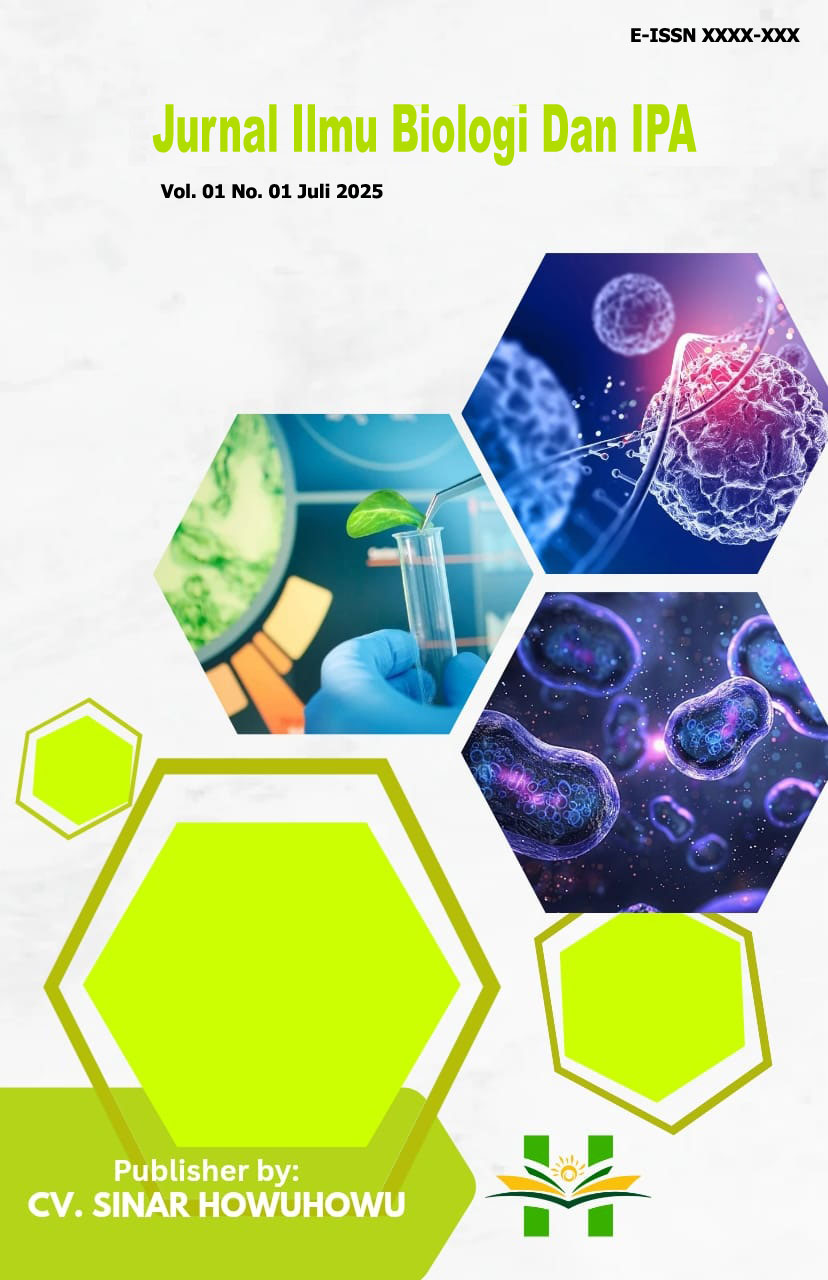Pengaruh Radiasi Ultraviolet Terhadap Stabilitas Dna Dan Laju Mutasi Seluler
Keywords:
Ultraviolet Radiation, DNA Damage, DNA Repair, Mutation Rate, CarcinogenesisAbstract
Ultraviolet (UV) radiation is a primary environmental mutagen that threatens genomic stability by causing various types of DNA damage. This study aimed to quantitatively analyze the effect of UV-B radiation on the induction of DNA damage, repair efficiency, and its consequent impact on the cellular mutation rate. Using human keratinocyte (HaCaT) cell cultures, cells were exposed to varying doses of UV-B radiation (0-200 J/m²). The level of DNA damage, specifically cyclobutane pyrimidine dimers (CPDs), was measured using an ELISA method, while the mutation rate was evaluated through the HPRT locus assay. The results showed that UV-B exposure caused a significant and dose-dependent increase in the number of CPDs. Although cells demonstrated a time-dependent capacity for DNA repair, this process was incomplete, especially at high doses, leaving persistent DNA lesions. The presence of this unrepaired damage directly correlated with a dose-dependent increase in mutation frequency. In conclusion, this study demonstrates a clear mechanistic pathway from UV exposure to DNA damage, which is then processed through incomplete repair into permanent genetic mutations. This process forms the molecular basis for the initiation of photocarcinogenesis, affirming the crucial role of UV protection in maintaining genomic integrity and preventing skin cancer.

